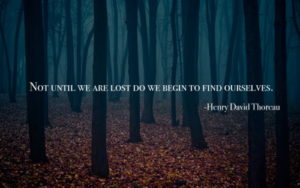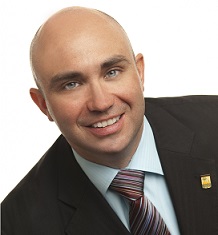
There is old knowledge that steamship captains used to look at the wake of the ship to let them know where to steer, in essence looking to the past to see the future. Steamboat pilots learned from experience, and the nation’s western rivers were strict, fickle teachers. Knowing the channel wasn’t nearly enough. The required learning included the locations of snags, rocks, sandbars, and landmarks, the depth of the water, and the strength of the current. As soon as they learned these vital facts, some changed. From the feel of the boat, the color of the water, and ripples and swirls, they had to deduce new information about what lay ahead. They put this knowledge to use day and night, in all kinds of weather, and in all seasons.
Automation and technology severs the ends from the means as it makes getting what we want easier, but it distances us from the work of knowing.
The world is a strange, changeable and dangerous place. Getting around in it demands, of any animal a great deal of effort, mental and physical. For ages, humans have been creating tools to reduce the strain of travel. Earlier navigational aids were just that – aids. They were designed to give travelers a greater awareness of the world around them – to sharpen their sense of direction, provide them with advance warning of danger, highlight nearby landmarks and other points of orientation, and in general help individuals situate themselves in both familiar and new settings.
Satellite navigation systems or GPS can do all of those things but they are not designed to deepen our involvement with our surroundings. They are designed to relieve us of the need of such involvement and end up isolating us from the environment. You no longer need to know where you are and where you are going, attend to physical landmarks along the way, or get assistance from other people – automation inhibits the process of experiencing the physical world by navigating through it.
Traditional maps gives us context. They provide us with an overview of an area and require us to figure out our current location and then plan or visualize the best route to our next stop. Yes, they require some work – good tools always do – but the mental effort aids our mind in creating its own cognitive map. Map reading strengthens our sense of place and hones our navigational skills – in ways that can make it easier for us to get around even when we don’t have a map at hand. We can, without knowing it, call on our subconscious memories in orienting ourselves in a city and determine which way to head to arrive at our destination. Paper maps don’t just shepherd us from one place to the next, they teach us how to think about space.
Map generated by satellite-linked computers usually provide meager information and few navigational cues. Instead of requiring us to puzzle out where we are in an area, a GPS simply sets us at the centre of a map and then makes the world circulate around us. We can get around without knowing where we are, where we have been or which direction we are headed.
But while we may no longer have much of a cultural stake in the conservation of our navigational prowess, we still have a personal stake in it. We are, after all, creatures of the earth. We are not abstract dots proceeding along thin blue lines on computer screens. We are real beings in real bodies in real places. Getting to know a place takes effort, but it ends in fulfillment and in knowledge. It provides a sense of personal accomplishment and autonomy, and it also provides a sense of belonging, a feeling of being at home in a place rather than passing through it. Way finding opens a path from alienation to attachment. We may grimace when we hear people talk of “finding themselves,” but the figure of speech, however vain, acknowledges our deeply held sense that who we are is tangled up in where we are. We can’t extract the self from its surroundings, at least not without leaving something important behind.
A GPS can make our lives easier but it steals from us the joy and satisfaction of apprehending the world around us – and of making that world a part of us. Wayfaring, as opposed to transportation, is our most fundamental way of being in the world. Immersed in the landscape, attuned to its textures and features, the wayfarer enjoys an experience of movement in which action and perception are intimately coupled. Wayfaring becomes an ongoing process of growth and development or self-renewal. With a GPS you can go anywhere on the planet and have confidence that you can get directions to get you where you want to do safely and easily. No human ever has to feel lost again but avoiding the world of figuring out where we are and where we are going may have unforeseen and disastrous consequences.
The automation of wayfinding distances us from the environment that shaped us. It encourages us to observe and manipulate symbols on screens rather than attend to real things in real places. When we eliminate any upwards options from our mental maps and worse eliminate our motivation to search for them, we end up undermining our ability to tackle the challenge at hand.
Technology has always challenged people to think about what is important in our lives, to ask ourselves what human being means. We can allow ourselves to be carried along by the technological current or we can push against it. To resist invention is not to reject it. It is to humble it and bring progress back to earth. Each time we collide with the real, we deepen our understanding of the world and become more fully a part of it. While we are wrestling with a challenge, we may be motivated by the anticipation of the end but it is the world that makes us who we are.
But in order to find yourself, you sometimes have to get lost.

Kevin T. Cahill is an award winning sales professional and consultant specializing in the art of managing change and achieving great results. As the founder of The Change Revolution, this international best selling author and speaker inspires men and women alike. As someone who has mastered the art of resilience and hope, Kevin’s philosophy as a clarity builder is strategic and results driven. Kevin’s passion is to equip individuals and organizations with a renewed sense of clarity and excitement, knowing that positive change will bring about positive gains. His exciting creation The Change Revolution offers a winning blueprint for navigating through change and achieving success.
Speaking inquiries email bookings@kevintcahill.com or call 519-836-7989.
